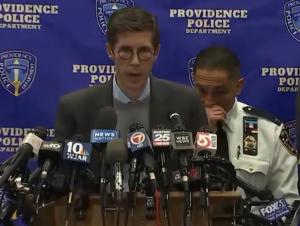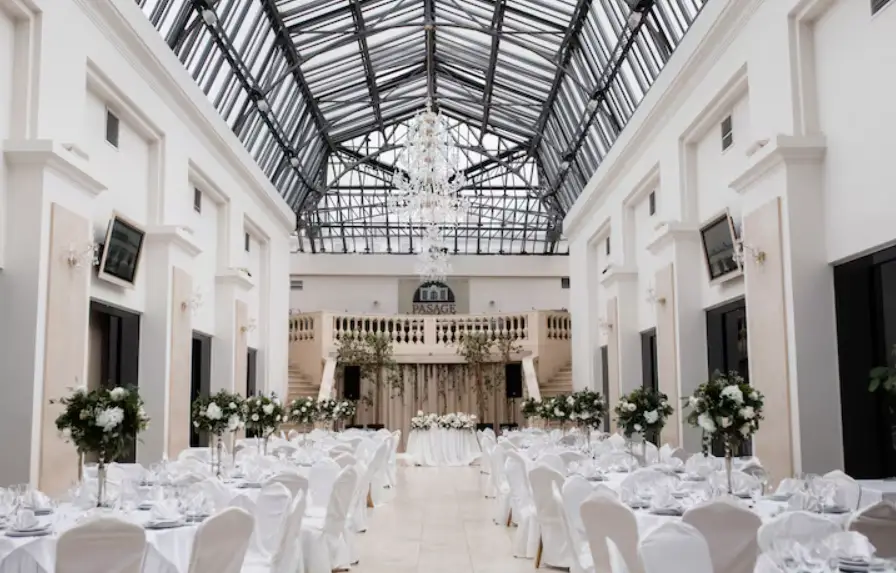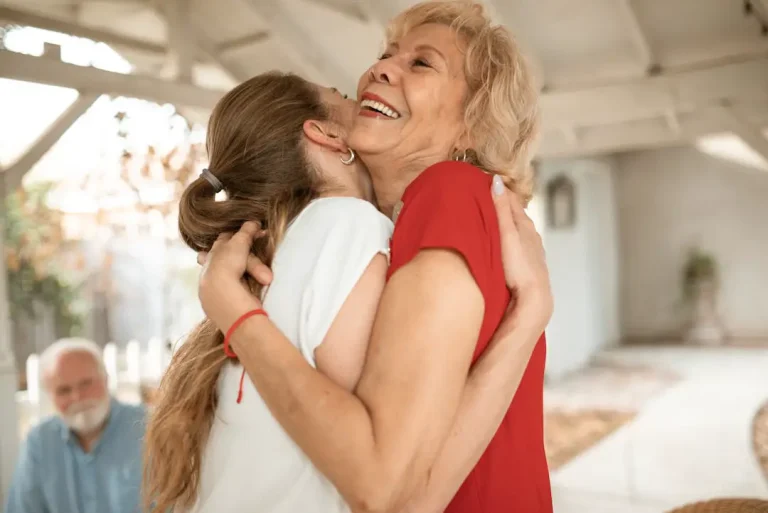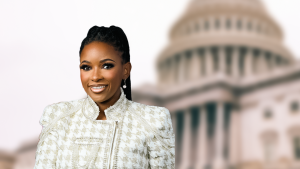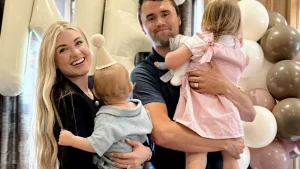My Family Ignored Me at My Brother’s Wedding—Until Someone Called Out My Military Rank
My name is Emily Madison, and I’ve spent most of my life being erased by the very people who were supposed to love me. At my brother’s wedding, they didn’t say my name once. Not in the seating chart, not in the toasts, not even when I walked in the door.
But what they didn’t know—what no one in that room knew—was that I had a title. One that would silence every smirk and spin the entire night on its head.
Chapter 1: The Invisible Guest
I arrived early like always. It’s a habit you can’t break when you’ve been trained to move before the whistle. The venue was one of those countryside estates with white pillars and manicured hedges, the kind of place my parents love to brag about—but never with me involved.
I stepped inside wearing a simple slate-gray cocktail dress, heels low, hair pulled back. I looked plain, civilian—and that was exactly the point. No one recognized me.
Aunt Meredith brushed past with a fake smile. “You’re—you’re one of Nick’s cousins, right?”
I nodded, letting her guess. The seating chart didn’t list my name, just “plus one” next to some distant cousin. I found my spot near the kitchen doors where wait staff slipped in and out like ghosts. I sat quietly, napkin folded in my lap, watching champagne flutes clink in the distance.
Then came the toasts. My father stood tall, rigid spine, suit sharp as ever.
He looked right past me. So did my mother, glowing beside him, nodding like a woman who’d never held a second child. Not once did they mention my name, not even a whisper. It was like I had never existed.
And maybe in their version of the story, I didn’t. Maybe I had disappeared the moment I chose a different path—not the path of pearls and marriage licenses, but boots, camouflage, and steel resolve.
Chapter 2: The Father’s Verdict
I don’t remember the exact day I gave up trying to impress my father, but I remember the moment I stopped hoping he’d see me. I was seventeen. The night before I left for West Point, the house smelled like cedar and bourbon like always.
Mom had cooked a quiet dinner—roast chicken, his favorite. Nick was already back in his room, gaming or texting whatever girl he was stringing along. I sat at the table in my neatly pressed clothes. I had shaved ten seconds off my mile, memorized every regulation in that admissions packet. I had done everything right, everything by the book.
But when I told Dad I got my acceptance letter, he didn’t say congratulations. He didn’t stand up. He didn’t even look surprised.
I stared at him like he’d slapped me. Maybe I wished he had. At least that would have felt honest. Then, like he was already bored with the topic, he added: “You’re not built for it. You’re good with people—sure, maybe logistics—but combat? Emily, you fold laundry like it’s a ceremony. You cry when a bird hits a window.”
That line stuck with me for years. I cried when a bird hit a window because it was alive, and because nobody else in that house did.
Sometimes I wonder how many people have fathers like mine—people who think they’re protecting us by holding us back. If you’ve ever had someone tell you you’re not enough, those voices never really go away. They just get quieter until you can outmarch them.
That night after dinner, I sat on the porch alone. No send-off, no proud photos, no hand on the shoulder—just a half-warm “good luck” tossed from behind the front door.
Chapter 3: West Point and Beyond
West Point was colder than I expected. Not just the weather—the wind cut through every layer I owned—but the silence, the pressure, the isolation. There were nights I’d sit on the edge of my bunk, boots still muddy, socks soaked through, wondering if maybe my dad had been right.
It didn’t break me. Because I wasn’t just trying to survive West Point. I was surviving the version of me they’d tried to burn out years ago.
The first year was the worst. I learned how to run on blisters, how to swallow blood after a fall, how to keep marching when your legs feel like sandbags. I learned how to keep my face still when a superior officer screamed inches from it. And I learned how not to flinch.
Once, Mom sent a birthday card. It arrived late. The envelope was already opened. Inside, she’d written: “Hope you’re doing okay. Dad says hi.” That was it. No love. No “we’re rooting for you.” Not even a photo. Just a reminder: you’re on your own.
So I built myself from the ground up. I climbed every rank I could. I studied harder, trained longer. When they assigned me overseas, I took it. When the nights got brutal, I didn’t blink.
And somewhere along the way, something shifted. I stopped wanting my father’s approval. I stopped imagining that one day he’d turn up, shake my hand, and say, “You proved me wrong.” People like him don’t change. You do.
That’s when the Army started calling me Colonel Madison.
But my parents—they still called me the difficult one. They didn’t ask what I did. They didn’t want to know. They were too busy telling neighbors about Nick’s new car.
I stayed quiet because I was saving my voice—for the moment they’d have no choice but to listen.
Chapter 4: The Wedding Reception
Back at the wedding, I watched the slideshow in silence. Photos of Nick growing up, clips of him graduating, goofy videos from college. There was even one clip that showed me, maybe twelve years old, helping him climb a tree in our backyard. They edited that part out—cut right before I entered the frame.
The dinner was salmon and small talk. I ate quietly while the table discussed Nick’s job, Nick’s apartment, Nick’s plans for children. When someone asked what I did for work, I said, “Government service,” and left it at that. They nodded and moved on to more interesting topics.
During the father-daughter dance, I excused myself to the restroom. In the mirror, I looked exactly like what I was: a woman who had learned to disappear so well she barely cast a shadow. But as I washed my hands, I noticed something else in my reflection—the posture that eighteen years of military service had carved into my spine. Shoulders back, chin level, eyes that had seen things these people couldn’t imagine.
I wasn’t disappearing anymore. I was choosing to be invisible. There’s a difference.
Chapter 5: The Recognition
I was heading back to my table when it happened. A man in dress blues—someone I didn’t immediately recognize—was standing near the bar. He was older, maybe fifty, with ribbons across his chest and the bearing of someone accustomed to command.
Our eyes met across the room, and I saw the exact moment recognition hit him. His posture straightened, his expression shifted, and he began walking toward me with purpose.
I knew that walk. I’d perfected it myself over two decades of service.
“Colonel Madison,” he said loudly enough for half the room to hear. “Major General Harrison, ma’am. I had the honor of reading your after-action report from the Kandahar operation. Outstanding work.”
The effect was immediate and electric. Conversations stopped mid-sentence. Champagne glasses paused halfway to lips. Every head within twenty feet turned toward us.
I returned his salute with the crisp precision that had become second nature. “Thank you, General. It was my privilege to serve with such exceptional soldiers.”
The silence that followed was different from the silence that had surrounded me all evening. This wasn’t the silence of invisibility—it was the silence of shock.
My father’s voice cut through the quiet from two tables away: “Colonel?”
Chapter 6: The Revelation
General Harrison smiled and continued, either unaware of or deliberately ignoring the family drama he’d just triggered. “The men under your command speak very highly of you, Colonel. Captain Stevens in particular. He said you saved his life during that extraction.”
“Captain Stevens saved his own life by following orders under extreme pressure. I was proud to serve with him.”
By now, the entire wedding reception had gone quiet. Even the band had stopped playing. My mother stood frozen by the head table, her mouth slightly open. Nick was staring at me like he’d never seen me before.
And my father—my father was pushing through the crowd toward us, his face cycling through confusion, disbelief, and something that might have been dawning recognition.
I shook his hand, maintaining the composure that had gotten me through firefights and congressional hearings. “Thank you, sir. I was fortunate to serve with outstanding people.”
My father reached us just as General Harrison was expressing his hope that we’d work together in the future. Dad stood there, looking smaller than I’d ever seen him, trying to process what he was hearing.
“Emily?” he said, his voice barely above a whisper. “You’re a… colonel?”
I looked at him—really looked at him—for the first time in years. “Yes, Dad. I am.”
The silence stretched between us, filled with eighteen years of unspoken words, missed phone calls, and the ghost of a seventeen-year-old girl who had tied her own boots and left home without a proper goodbye.
Chapter 7: The Aftermath
The rest of the reception passed in a blur of sudden attention. People who had looked through me all evening were now eager to shake my hand, ask about my service, and apologize for not recognizing me sooner.
Nick found me during the cake cutting, his eyes red-rimmed in a way I hadn’t seen since we were children.
“Emily, I… I had no idea. Why didn’t you tell us?”
I considered the question seriously before answering. “Would it have mattered?”
He opened his mouth to say yes, then closed it. We both knew the answer. It shouldn’t have taken a military rank to make them see me, but it had.
“I’m sorry,” he said finally. “I’m sorry we made you feel like you had to prove yourself to us.”
It was the first real conversation we’d had in years.
“I kept your acceptance letter to West Point,” she said quietly. “All these years, I kept it in my jewelry box. I was so proud, but your father… he said it wasn’t my place to encourage you.”
“Mom—”
“I should have been braver,” she continued. “I should have stood up for you. I should have been the mother you deserved.”
For the first time in twenty years, I saw her not as the woman who had failed to protect me, but as someone who had been struggling with her own limitations.
“I turned out okay,” I said gently.
She laughed through tears. “Better than okay. You turned out extraordinary.”
Chapter 8: The Conversation
My father waited until the very end of the reception to approach me. Most of the guests had left, and I was gathering my purse when he appeared beside my table.
“Could we… could we talk?”
We walked outside to the garden where the air was cooler and the music from inside was just a distant hum. He stood with his hands in his pockets, looking older than I remembered.
“Colonel,” he said, testing the word. “My daughter is a colonel.”
“Your daughter has been a lot of things you never bothered to learn about.”
He flinched but didn’t argue. “I thought I was protecting you. I thought if I prepared you for rejection, it would hurt less when it came.”
We stood in silence for a long moment, two people who had spent decades misunderstanding each other.
“I don’t know how to fix this,” he said finally.
“You can’t fix eighteen years in one conversation. But you could try starting now.”
He nodded, and for the first time in my memory, my father looked uncertain—vulnerable in a way that made him seem human rather than just disappointing.
Chapter 9: Moving Forward
In the months that followed, things changed slowly. My father started calling once a week, awkward conversations where he asked about my work and actually listened to the answers. My mother sent care packages—the kind she should have sent twenty years earlier, but I accepted them for what they were: late gestures of love.
Nick and I began rebuilding our relationship over Sunday dinners and shared memories of a childhood that had been complicated but not entirely unhappy. His wife, Jenna, became an unexpected ally, someone who saw me clearly from the beginning and wasn’t impressed by rank but by character.
When their first child was born—a daughter—they asked me to be her godmother. Standing in that church, holding that tiny girl while she slept peacefully in my arms, I felt something I’d been missing for decades: the certainty that I belonged somewhere, that I was wanted for who I was rather than what I could prove.
Chapter 10: The Real Victory
A year after the wedding, I was promoted to full colonel. This time, my family was there for the ceremony. My father sat in the front row, tears streaming down his face as I took my oath. My mother held his hand and whispered “that’s my daughter” to the stranger sitting next to her.
Nick brought Elena, now six months old, who slept through the entire ceremony but woke up just in time to watch me receive my new insignia. When I held her afterward, she grabbed onto my collar and held tight, as if she understood that some bonds are worth fighting for.
But the real victory wasn’t the promotion or the family reconciliation. It was the moment I realized I no longer needed their validation to know my worth. The revenge I’d planned for so many years—the dramatic reveal, the shocked silence, the moment of recognition—had happened exactly as I’d imagined it.
And it had been satisfying for exactly as long as it took me to realize that proving them wrong was less important than proving myself right.
If you’ve ever walked into a room that used to make you small and found that you fit just fine now, I understand that feeling. If your name has been left off lists, if your achievements have been minimized, if you’ve been told you’re not enough—know this: someone out there sees your worth, even when your own family doesn’t.
The girl who tied her own boots and left home without a proper goodbye grew up to become a woman who could command a room without raising her voice. She learned that respect isn’t given, it’s earned—and that sometimes the people you most want to impress are the ones least capable of recognizing what’s truly impressive.
The wedding was two years ago now. My relationship with my family continues to heal, built on a foundation of mutual respect rather than childhood obligations. We’ll never get back those lost years, but we’re building something new—something honest.
And sometimes, when I’m visiting them for Sunday dinner or helping Elena take her first steps in their backyard, my father will look at me with something approaching wonder and say, “I can’t believe my daughter is a colonel.”
I don’t correct him anymore. I don’t tell him that his daughter was always remarkable, that rank is just recognition of what was already there. Because he’s learning, slowly, to see me—and that’s enough.
The rest is just details.

Emily Johnson is a critically acclaimed essayist and novelist known for her thought-provoking works centered on feminism, women’s rights, and modern relationships. Born and raised in Portland, Oregon, Emily grew up with a deep love of books, often spending her afternoons at her local library. She went on to study literature and gender studies at UCLA, where she became deeply involved in activism and began publishing essays in campus journals. Her debut essay collection, Voices Unbound, struck a chord with readers nationwide for its fearless exploration of gender dynamics, identity, and the challenges faced by women in contemporary society. Emily later transitioned into fiction, writing novels that balance compelling storytelling with social commentary. Her protagonists are often strong, multidimensional women navigating love, ambition, and the struggles of everyday life, making her a favorite among readers who crave authentic, relatable narratives. Critics praise her ability to merge personal intimacy with universal themes. Off the page, Emily is an advocate for women in publishing, leading workshops that encourage young female writers to embrace their voices. She lives in Seattle with her partner and two rescue cats, where she continues to write, teach, and inspire a new generation of storytellers.



